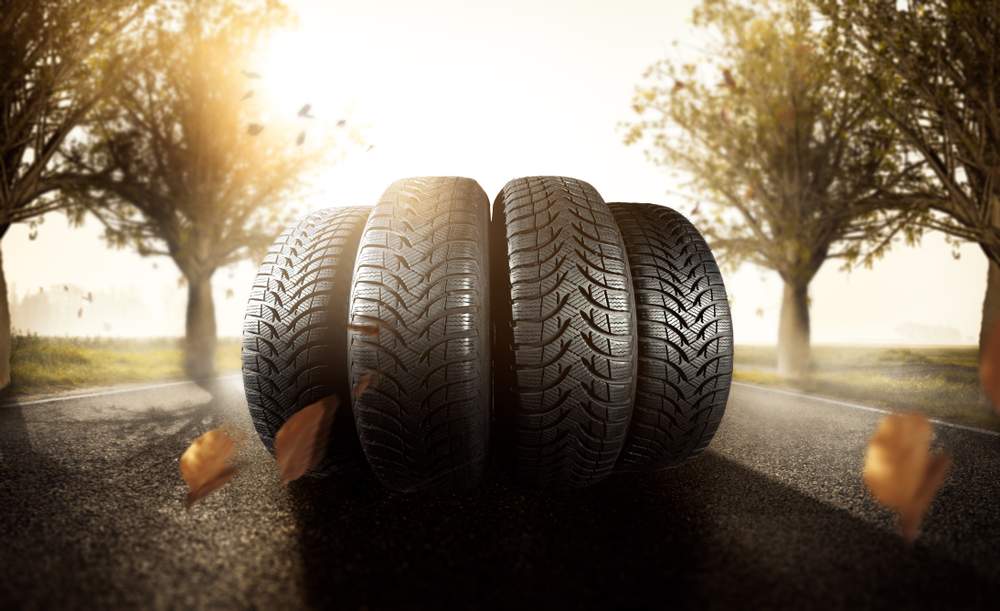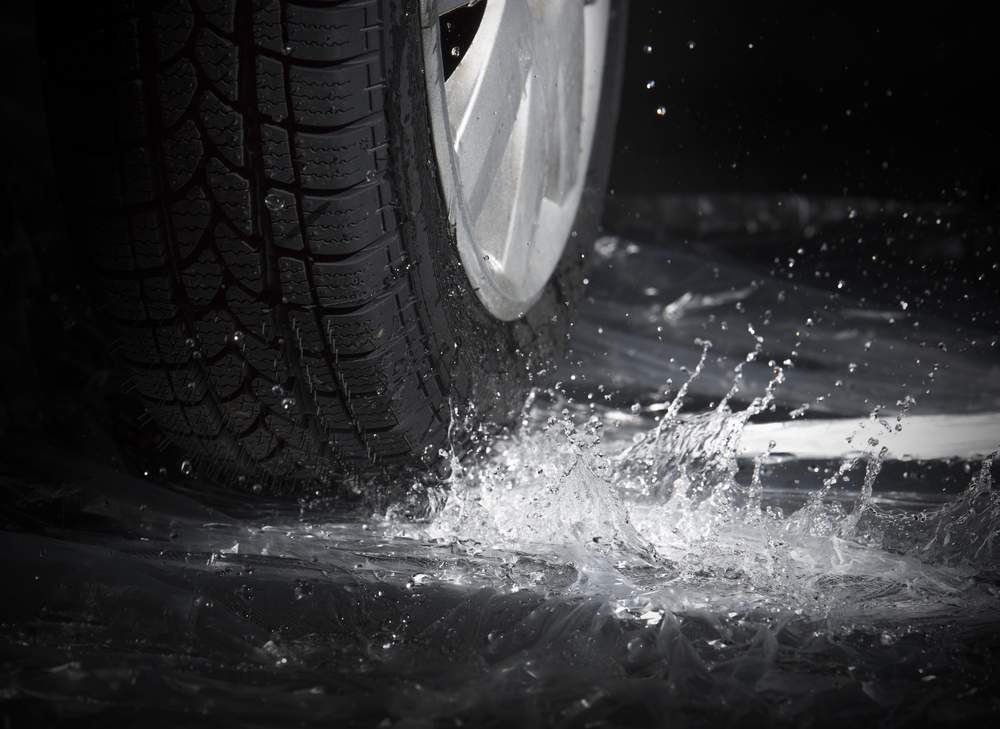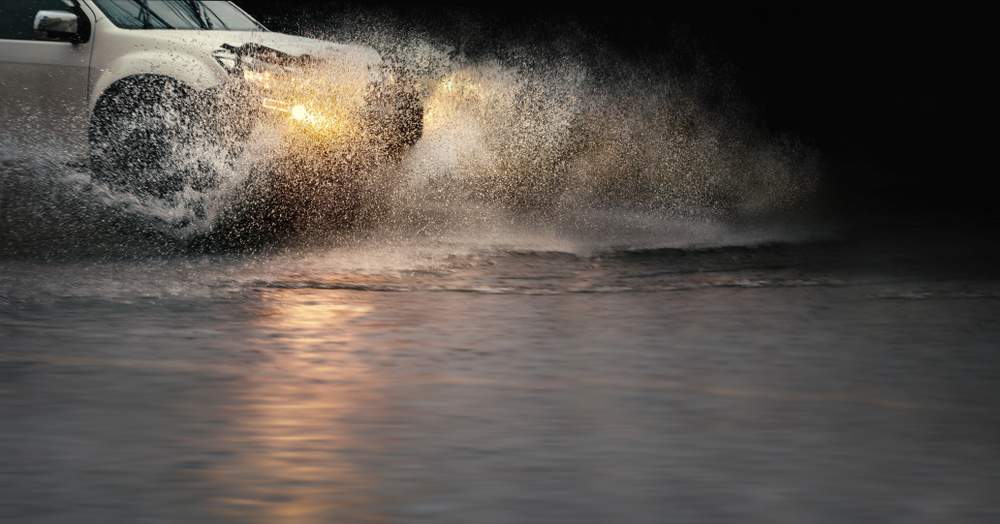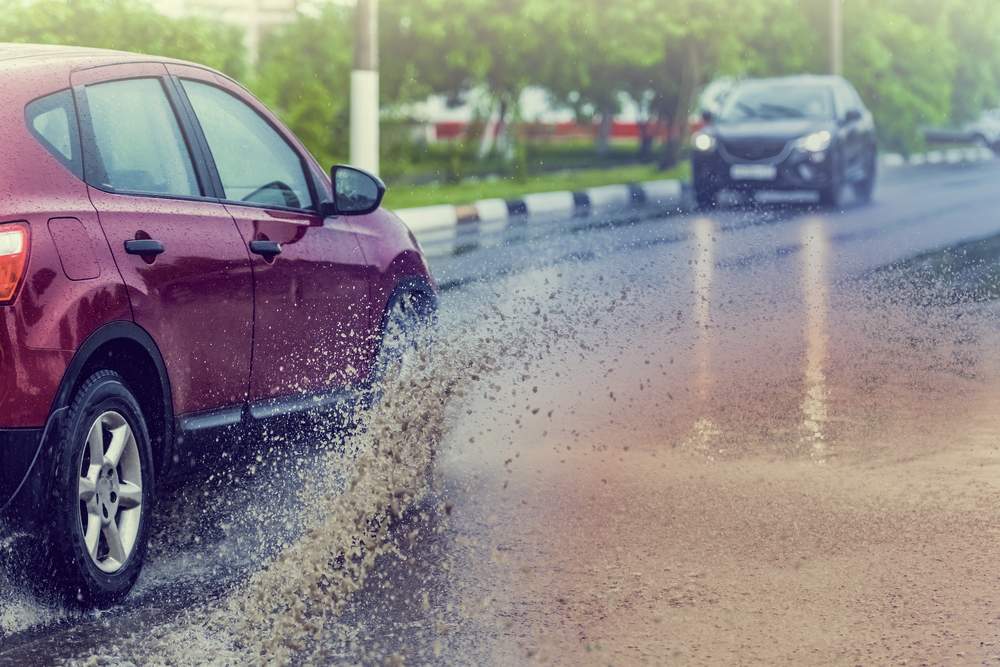A Canadian’s Guide To Buying Tires For The Fall/Rainy Season
Rain and Snow are Never Easy on Vehicles. Check Out This Guide To Buying the Right Tires for Fall and Wet Weather Conditions.

You may have the best-looking alloy wheels to complement your awesome ride and an engine that guarantees performance, but it’ll be impossible to enjoy a comfortable and safe drive without the right set of tires.
If your locality sees light rain and occasional showers, any tire with a good tread depth and recommended tire pressure will do fine. However, if it rains a lot and standing water is something you are familiar with, get tires meant for wet conditions to keep you safe.
When it comes to driving in wet conditions and extreme weather, you need tires that have terrific traction. Steering control and braking should also happen quickly and within minimal distance.
But tire buying doesn’t come easy – a lot lies on the table that cannot be overlooked – you got to choose between various brands, tire types, and sizes.
Lucky for you, we did the homework to find the perfect tires for such precarious conditions. In fact, we partnered with TDot Performance, a Canada-based auto-parts ecommerce store, to create this guide on buying tires for wet weather.
They are Canada’s one-stop-shop for hassle-free auto-parts purchase, as well as top tires from Michelin, BFGoodrich, and many other quality brands!
Whether you drive a salon, sports car, CUV, SUV, pickup, or any other type of car, read on to know what kind of tires you need to get through the rainy season safely.

Benefits Of Rain Tires
Here are some reasons to invest in a set of rain tires:
- They resist hydroplaning by driving out all water from the contact patch, keeping the vehicle driving steady even when the roads are wet
- Longevity — these tires are known to have a uniform treadwear, all sides wear in the same manner, at the same time
- Reasonably-priced — since there are so many makes and models on the market, it is easy to pick a good, affordable option, that gets you through the toughest of seasons
Things To Consider
Before you head to the market to buy new tires, make sure you know the answers to these questions:
- What is the right tire for my car, considering the weather and season?
- How many miles would the potential selection last for?
- What’s my budget?
- Should I replace the worn of tires or go for a full replacement?
Next, make sure you also consider the following factors:
Climate Conditions
When picking new tires, know precisely what you’ll be dealing with. Tires that work well in light to moderate rain can be disastrous in heavy storm-like conditions.
Similarly, summer tires only work when the temperature is warm. In contrast, winter tires cannot hold to the ground properly when it’s hot and humid.
If the temperature falls below 68 °F tires start losing traction in the wet. Likewise, winter tires get soft in hot weather, and in turn, the grip, steering control, braking, and traction suffer badly.
You can also opt for all-weather tires that have a slightly lesser temperature range then all-season tires. They are better suited for cold, winter-like wet conditions but may lack performance in the summers.

The Vehicle You Own
Tires come in different sizes, and types with different speed and load ratings.
If you are a proud owner of a coupe or sports car, a high load rating or big sidewalls might not be what you need, but you won’t be able to compromise on speed ratings. Likewise, if you drive a pickup truck or a large SUV, a low-speed rating will do but, you require large sidewalls and significant load ratings.
And if you own a sedan, salon or minivan, choose something in-between — a decent load rating as well as speed rating.
The good news is that all tire manufacturers define the profiles of all their tires in detail on their websites and also point out their purpose. Local online retailers like TDot Performance can also help you figure out the right tire for your vehicle for every season and need.
Find a good retail partner, so choosing the right tire becomes a seamless process.
Your Driving Style
Car owners have unique driving habits — some love to test their vehicles to the limits while others like to stay within their limits. Thankfully, tire manufacturers consider these different needs and create tires that are suitable for driver behaviors.
Highway, grand-touring, and touring tires are a safe bet for most drivers who treasure longevity (resilient tread compound), consistent braking and traction on wet roads, as well as a comfortable, noise-free ride.
The best part is that these tires can be fitted to cars of several sizes, including sports cars. And drivers choose them for their exceptional tread design and compound ensures that when it rains, the grip won’t suffer.
If you are looking for exceptional performance, check out high-performance tires that offer outstanding traction, tight gripping, and short braking distances in wet conditions – but be ready to pay the price because these can be expensive.
Remember though, other options on the market may seem better for rainy weather like ultra-high performance tires, max-performance tires, and many more, but they aren’t. They can perform well in damp conditions and not fully-wet.
Tread Design
Tread is undoubtedly an essential factor in defining a tire’s quality. Better tread compound and design always point to a quality tire.
Each tire manufacturer has its unique tread design, but overall there are some commonalties by the type of tire as well. For instance, winter tires have bite-sized grooves to provide grip on ice, snow, and slush-ridden roads.
Tires meant to be driven in rainy conditions or through standing waters have a tread designed with channels to push water out from the tire’s footprint to ensure resistance to hydroplaning.
Durability
Tires don’t come cheap, so if a tire delivers for a season and no more, it’s won’t be worth the investment. You can judge how good a tire is by considering factors such as:
- Its manufacturer
- The material and technologies used in making it
- Reviews from past customers, etc.
Also, check the warranty coverage for overall tired and treadwear.
Cost Of Rain Tires
The better the tire, and the better its features will be, but that also means that it’ll have a higher price tag. Typically you can find tires in the following price range:
- Under $115 — these tires do the job well, but not for too long; they are not designed to provide great mileage, plus they lack some features and are generally smaller in size.
- $115 to $205 — modern cars, CUVs, and smaller SUVs typically require tires sized at 16 to 17-inches. These sizes on popular all-season tires, summer, or winter tires are generally available in this price range.
- $205 and higher — tires that are meant for the tracks or off-roading are usually this expensive. If you are looking to buy for your sports cars, SUVs, and pickup trucks, be prepared to pay even more.
You can buy tires from the local market or online. There’s one advantage to buying online – it’s easy to shop around, compare prices, and find the best prices, deals, and discounts.
Tire Noise
Tires can get loud!
Some people don’t notice it — they aren’t aware of where the sound is coming from, or their loud engine or stereo masks it.
This excessive noise can be attributed to several factors: it could be malfunctioning wheel bearings that can easily be fixed by replacing them. But other times it’s the sound of the car tire contacting the road, air compression in the grooves or disproportionate air volume.
However, it can get on your nerves when all you want to do is enjoy a calm ride.
And these factors usually mean that you are better off getting a newer, better set of tires.
Make sure the tires you purchase for the fall, create little to no noise — they should stay quiet when channeling out water or driving through standing water.
Ride Comfort
Driving a luxury vehicle is the pinnacle of indulgence for anyone who loves cars. But all the comfort and luxury go down the drain if it’s mounted with the wrong kind of tires.
For instance, winter tires won’t deliver the comfort you seek when it’s dry, hot, and humid; likewise, summer tires will fall short in heavy snow. And we don’t have to tell you how it can feel when you hit a pebble, pothole, or other rough patches when the tires are all wrong.
Therefore, consider your comfort as a driver when buying cars – you need a smooth ride, depending on the roads and climate conditions.

Ready To Buy Your Fall Season Tires?
Hopefully, by now, you agree that it is crucial to invest in the right tires to get through the upcoming rainy season.
End of the day, the wrong tire can be downright dangerous; imagine if your car slips on a wet road when you try to stop at the red signal. That’s the stuff nightmares are made of!
So if you are on the market to buy tires or only need to know your options for now, contact the experts at TDot Performance. Their customer service experts will answer all your queries and concerns.
While you are on their website, all check out their vast selection of tires and other car products. They’ve got some great deals going on right now, and there’s free shipping across Canada, 30-day return policy, and complete warranty.
